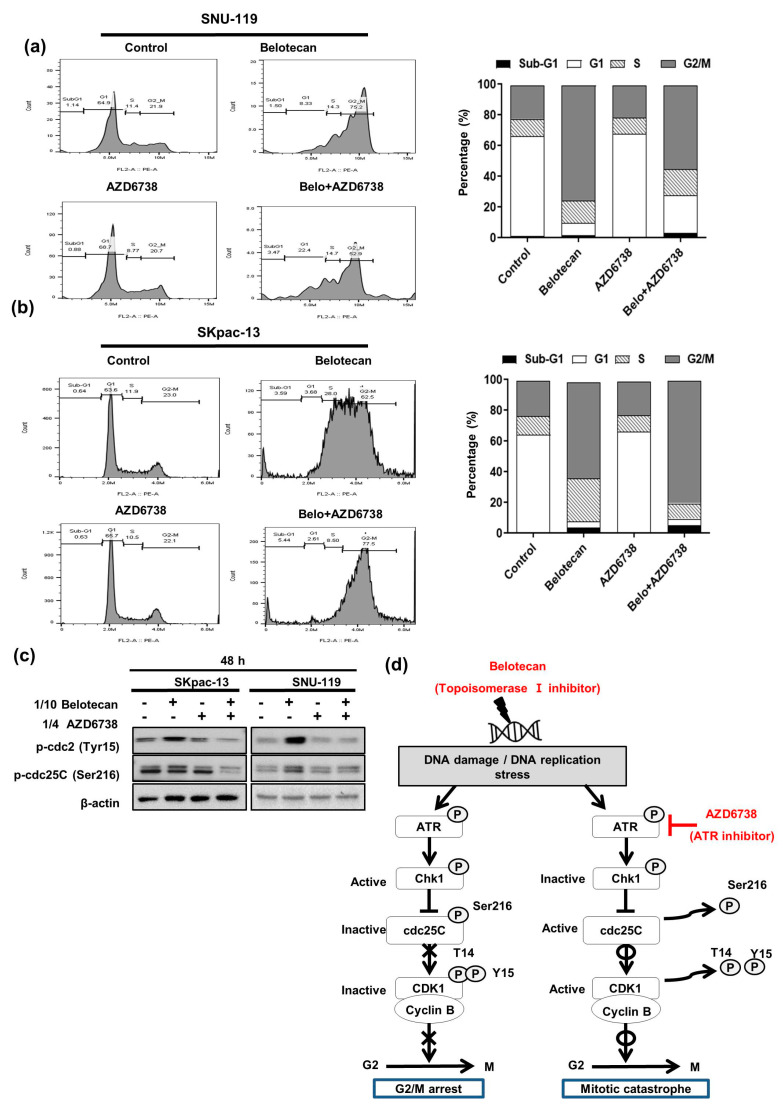Figure 4.
Mitotic catastrophe caused by AZD6738 in combination with belotecan may account for synergistic mechanisms. (a) Belotecan-induced G2/M arrest in the SNU-119 cells. (b) Belotecan-induced G2/M arrest in SKpac-13 cells. Addition of AZD6738 to belotecan led to more apoptosis, as indicated by the increased sub-G1 cell population compared to treatment with belotecan alone. (c) Downstream genes of Chk1, cdc25c, and phospho-CDK1 were increasingly phosphorylated with belotecan but were dephosphorylated again with the addition of AZD6738 to belotecan at 48 h. (d) Proposed synergistic mechanisms are depicted; belotecan-induced inhibitory phosphorylation of CDK1 causes mitotic exit, which is reversed by AZD6738, an ATR inhibitor, consequently allowing DNA-damaged cells to enter into mitosis, leading to mitotic catastrophe.

